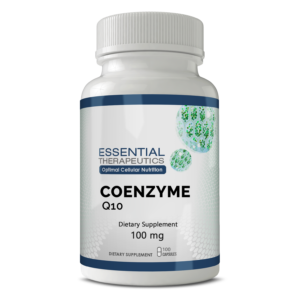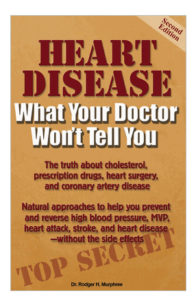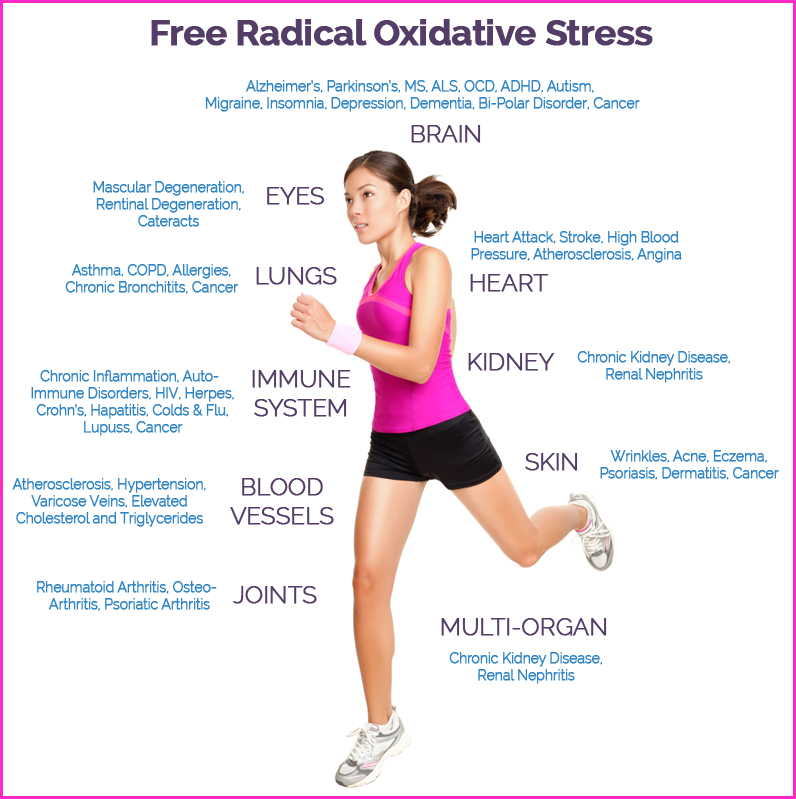
Eat Chocolate, Drink a Glass of Wine, Have a Cup of Coffee. Believe it or Not, You’ll Be Healthier For It!
In this newsletter I’d like to share some new research which reports that a moderate intake of coffee, alcohol, and yes, even chocolate (dark) is good for you. So feel free to eat, drink, and be merry. Just don’t overdo it. Enjoy your morning coffee and think of me when you have that next glass of red wine or piece of dark chocolate. Go ahead, it’s ok to live a little.
Good health to you!
As a health reporter, researcher, and clinician, I spend a great deal of time educating others about all the “bad stuff.” Don’t drink the water, avoid certain drugs, stay away from trans-fatty acids, avoid excess sugar, and so on. This can really be a downer sometimes. Early in my career I became almost militant about the dos and don’ts of healthy living. I preached about the dangers of sugar, alcohol, caffeine, processed meats, and electronic pollution (microwaves). I was only too happy to share how smart I was about the dangers of mercury fillings, too much fluoride, eating too many desserts, and other health-related sins. No friend or acquaintance was spared the latest research on the dangers of tap water, white bread, and inactivity. The more I learned, the more rigid I became. Eventually I came to realize the stress and rigidity of my so-called healthy living was more dangerous to my health than having a slice of apple pie every once in a while.

Red Wine Reduces The Risk of Heart Attacks
Numerous studies have investigated the benefits of red wine. These studies suggest that a moderate amount of red wine (one drink a day for women and two drinks a day for men) lowers the risk of heart attack for people in middle age by 30 to 50 percent. Research also reports that 1-2 servings of alcohol may prevent additional heart attacks for those who’ve already suffered from one. Other studies also indicate that red wine can raise “good” HDL cholesterol and prevent “bad” LDL cholesterol from forming. Red wine may help prevent blood clots and reduce the blood vessel damage caused by fat deposits.
Why Red Wine?
Red wine is a particularly rich source of antioxidants, flavonoids, and polyphenols. Resveratrol, a polyphenol, is found in grape skins and seeds. It increases HDL cholesterol and helps prevent blood clotting. Polyphenols also help reduce arterial fatty streaks or plaque. They do this by blocking a protein known as endothelin-1 (ET-1). Red wine blocks ET-1 while white or rosé had no effect on ET-1.
Flavonoids, on the other hand, exhibit antioxidant properties, and also help prevent blood clots and plaque formation in arteries. Caution, excess alcohol, including red wine, may increase triglycerides (blood fats). The American Heart Association (AHA) cautions people NOT to start drinking if they do not already drink alcohol. If you already drink alcohol, do so in moderation. AHA recommends one to two drinks per day for men and one drink per day for women. (A drink is one 12 oz. beer, 4 oz. of wine, 1.5 oz. of 80-proof spirits, or 1 oz. of 100-proof spirits.)
Find out what REALLY causes heart disease and what you can do to avoid it. –>> Learn More Here
Maintaining Healthy Gums May Help Prevent A Heart Attack
The main cause of gingivitis is plaque. Plaque forms when starches and sugars react with bacteria that are naturally present in the mouth. Plaque buildup can occur between the teeth and gums, in loose fillings, poorly cleaned partial dentures, bridges, and braces. If not removed within 72 hours, plaque will harden into tartar that cannot be removed by brushing or flossing. If left untreated this plaque then leads to a more severe condition known as periodontal disease, in which the inner gum and bone pull away from teeth and form pockets. These pockets can collect bacteria and debris, and become infected or abscessed. Bacteria will eventually wear down and cause decay of the underlying bone and connective tissue that hold teeth in place. The ultimate outcome is tooth loss. Diseased gums and loose teeth are certainly bad enough. However, even more alarming, new research reports that gum disease can lead to heart disease, heart attacks, and strokes.
A newly published study in the Journal of Periodontology confirms recent findings that people with periodontal disease (bacterial decay of the gums) are at a greater risk of cardiovascular disease.
Researchers found diseased gums released significantly higher levels of bacterial pro-inflammatory components, such as endotoxins, into the bloodstream in patients with severe periodontal disease compared to healthy patients. As a result, these harmful bacterial components in the blood could travel to other organs in the body, such as the heart, and cause harm. The increase in inflammatory chemicals may cause a rise in C-Reactive Protein levels (CRP). Elevated CRP levels increase the risk of heart disease, heart attacks, and strokes. Journal of Periodontology 2005, Vol. 76, No. 11-s, Pages 2089-2100 (doi:10.1902/jop.2005.76.11-S.2089).
Signs of Periodontal Disease

- Do you ever have pain in your mouth?
- Do your gums ever bleed when you brush your teeth or when you eat hard food?
- Have you noticed any spaces developing between your teeth?
- Do your gums ever feel swollen or tender?
- Have you noticed that your gums are receding (pulling back from your teeth) or your teeth appear longer than before?
- Do you have persistent bad breath?
- Have you noticed pus between your teeth and gums?
- Have you noticed any change in the way your teeth fit together when you bite?
- Do you ever develop sores in your mouth?
If you answered yes to one or more of these questions then you may be suffering from periodontal disease. Studies now suggest that gum disease may be passed from parents to children and even between couples. Therefore, the American Academy of Periodontology (AAP) recommends that treatment of gum disease may involve entire families and that if one family member has periodontal disease, all family members should see a dental professional for a periodontal disease screening. Certain prescription and over-the-counter drugs can contribute to plaque buildup. Over-the-counter cold medicines, tricyclic antidepressants (Trazadone, Doxepine, Elavil, etc.), amphetamines (stimulants), Effexor, Cymbalta, Wellbutrin, and other drugs may decrease salivation, which allows plaque and tartar to form. Oral contraceptive pills can increase microbial flora (bacteria that reside in the mouth) that then contributes to gingivitis.
Poor Nutrition.
A diet deficient in adequate amounts of calcium, vitamin C, and the B vitamins can increase the risk of developing periodontal disease. Certainly a diet that contains too much sugar, which feeds the bacteria, contributes to the increase of gingivitis and plaque.
Tobacco
 According to one study, smoking may be responsible for more than 50 percent of adult cases of periodontal disease in the US. The same study also found that smokers are four times more likely to develop advanced periodontal disease than nonsmokers. Smoking prevents oxygen and essential nutrients from being delivered to the gum tissues. Smoking also interferes with chemicals that regulate immune function and inflammation. The American Dental Association (ADA) recommends having a professional cleaning twice a year. Some people need to have cleanings done more frequently. Nonsurgical deep cleaning involves two procedures known as scaling and root planing; neither is very pleasant. Scaling removes plaque and tartar above and below the gum line. Root planing smoothes out the tooth root to remove bacteria buildup and encourage the gums to reattach to the teeth. Prevention is certainly the preferred choice. Brushing your teeth 2-3 times a day, flossing, rinsing with mouthwash daily, and scheduling regular dental cleanings should help you avoid periodontal disease. Mouthwash rinses are helpful in preventing the onset of gingivitis. Specially medicated mouth rinses containing a 0.1% solution of folic acid have effectively reduced gum inflammation and bleeding in double-blind trials. Studies have demonstrated that folic acid is very effective in preserving gum tissue and reducing the risk of gingivitis and periodontitis. (Prescription antibacterial mouthwashes containing the ingredient chlorhexidine [Peridex®, PerioGard®] are also frequently used to treat gum inflammation.) Hydrogen peroxide, which is included in many toothpastes, is a potent antibacterial agent. It can be diluted in water or mouthwash. Simply pour 2-3 tablespoons in 4-6 ounces of water or mouthwash, rinse thoroughly, and then spit. Do not swallow. Hydrogen peroxide can trigger harmful free radical production if ingested. CoQ10, an antioxidant enzyme, helps prevent and reverse periodontal disease.
According to one study, smoking may be responsible for more than 50 percent of adult cases of periodontal disease in the US. The same study also found that smokers are four times more likely to develop advanced periodontal disease than nonsmokers. Smoking prevents oxygen and essential nutrients from being delivered to the gum tissues. Smoking also interferes with chemicals that regulate immune function and inflammation. The American Dental Association (ADA) recommends having a professional cleaning twice a year. Some people need to have cleanings done more frequently. Nonsurgical deep cleaning involves two procedures known as scaling and root planing; neither is very pleasant. Scaling removes plaque and tartar above and below the gum line. Root planing smoothes out the tooth root to remove bacteria buildup and encourage the gums to reattach to the teeth. Prevention is certainly the preferred choice. Brushing your teeth 2-3 times a day, flossing, rinsing with mouthwash daily, and scheduling regular dental cleanings should help you avoid periodontal disease. Mouthwash rinses are helpful in preventing the onset of gingivitis. Specially medicated mouth rinses containing a 0.1% solution of folic acid have effectively reduced gum inflammation and bleeding in double-blind trials. Studies have demonstrated that folic acid is very effective in preserving gum tissue and reducing the risk of gingivitis and periodontitis. (Prescription antibacterial mouthwashes containing the ingredient chlorhexidine [Peridex®, PerioGard®] are also frequently used to treat gum inflammation.) Hydrogen peroxide, which is included in many toothpastes, is a potent antibacterial agent. It can be diluted in water or mouthwash. Simply pour 2-3 tablespoons in 4-6 ounces of water or mouthwash, rinse thoroughly, and then spit. Do not swallow. Hydrogen peroxide can trigger harmful free radical production if ingested. CoQ10, an antioxidant enzyme, helps prevent and reverse periodontal disease.
 Research shows that people with periodontal disease are often deficient in CoQ10. Recent studies have shown that CoQ10, at doses of 50 mg to 75 mg a day, can halt deterioration of the gums and allow healing to occur, sometimes within days of starting therapy. Vitamin C helps prevent and reverse periodontal disease. In one study, those with periodontal disease who increased their vitamin C daily intake by a mere 70mg, experienced marked improvement in gum tissue within six weeks. Increasing your dose of vitamin C to 1,000mg-2,000mg produces even quicker results. Smoking depletes vitamin C levels. Smokers should be taking a minimum of 2,000mg of vitamin C a day. If you find you have the signs of early periodontal disease, rinse daily with CoQ10 chewable tablets. Simply chew up a tablet or empty a CoQ10 capsule into your mouth, add a small amount of water, thoroughly rinse your gums, then swallow. Also add an additional 1,000mg-2,000mg of vitamin C to your daily multivitamin/mineral formula. Kiss My Face, a company that makes all natural hygiene products, has a potent antibacterial, antioxidant toothpaste with CoQ10 and tea tree oil. Tea tree oil, used as an oral rinse, paste, or gel, has been proven to kill bacteria. In fact, research has shown that a tea tree oil concentration of 0.6 percent destroyed 14 of 15 oral types of bacteria. I recommend this toothpaste for anyone wanting to avoid periodontal disease. Kiss My Face products can be found at some upper-end grocery stores (Publix, Bruno’s, etc.) and most health food stores.
Research shows that people with periodontal disease are often deficient in CoQ10. Recent studies have shown that CoQ10, at doses of 50 mg to 75 mg a day, can halt deterioration of the gums and allow healing to occur, sometimes within days of starting therapy. Vitamin C helps prevent and reverse periodontal disease. In one study, those with periodontal disease who increased their vitamin C daily intake by a mere 70mg, experienced marked improvement in gum tissue within six weeks. Increasing your dose of vitamin C to 1,000mg-2,000mg produces even quicker results. Smoking depletes vitamin C levels. Smokers should be taking a minimum of 2,000mg of vitamin C a day. If you find you have the signs of early periodontal disease, rinse daily with CoQ10 chewable tablets. Simply chew up a tablet or empty a CoQ10 capsule into your mouth, add a small amount of water, thoroughly rinse your gums, then swallow. Also add an additional 1,000mg-2,000mg of vitamin C to your daily multivitamin/mineral formula. Kiss My Face, a company that makes all natural hygiene products, has a potent antibacterial, antioxidant toothpaste with CoQ10 and tea tree oil. Tea tree oil, used as an oral rinse, paste, or gel, has been proven to kill bacteria. In fact, research has shown that a tea tree oil concentration of 0.6 percent destroyed 14 of 15 oral types of bacteria. I recommend this toothpaste for anyone wanting to avoid periodontal disease. Kiss My Face products can be found at some upper-end grocery stores (Publix, Bruno’s, etc.) and most health food stores.
Gingivitis is the most common and mildest form of oral/dental disease. According to the Food and Drug Administration, approximately 15 percent of adults between 21 and 50 years old, and 30 percent of adults over 50, have gum disease. Gingivitis is associated with inflammation and bleeding of the gums. We are happy to carry a great CoQ10 formula.
To visit my online store to learn more about my special CoQ10 formula –>> CLICK HERE
Good News For Coffee Drinkers
 New research that contradicts previous studies on the ill effects of coffee has found that one to three cups of the brew per day may actually protect people from heart disease. The study, which was part of the Iowa Women’s Health Study found that up to 60 percent of antioxidants (which protect cells from damage and reduce the inflammation that encourages arteries to narrow) in the diet may come from coffee. The study was based on data of 27,000 older women followed for 15 years, and appears in American Journal of Clinical Nutrition.
New research that contradicts previous studies on the ill effects of coffee has found that one to three cups of the brew per day may actually protect people from heart disease. The study, which was part of the Iowa Women’s Health Study found that up to 60 percent of antioxidants (which protect cells from damage and reduce the inflammation that encourages arteries to narrow) in the diet may come from coffee. The study was based on data of 27,000 older women followed for 15 years, and appears in American Journal of Clinical Nutrition.
The researchers pointed out that active parts of coffee include caffeine as well as polyphenols, which are also found in red wine and have been linked to a reduction in the risk of cardiovascular diseases in people who drink one to three glasses of red wine a day. Dr Sarah Jarvis, a fellow of the Royal College of General Practitioners, said that the study showed that too much coffee, like too much alcohol, was bad, and that people should drink coffee in moderation. The study found that women who took coffee in moderation had a reduced risk of cardiovascular disease by about 30 percent.
Dark Chocolate Lowers Blood Pressure
Dark chocolate — not white chocolate — lowers high blood pressure, say Dirk Taubert, MD, PhD, and colleagues at the University of Cologne, Germany. Their report appears in the Aug. 27 issue of the Journal of the American Medical Association. A few squares of dark chocolate every day could help stave off heart disease. Researchers have found. Its antioxidants may prevent arteries from narrowing and hardening, according to the team from Switzerland.
Writing in the journal, Heart Today, the authors said dark chocolate had more antioxidants per gram than many other foodstuffs whose virtues were already recognized, such as red wine, green tea, and berry fruits. They conclude “A small daily treat of dark chocolate may substantially increase the amount of antioxidant intake and beneficially affect vascular health.”
** Notice the researchers emphasized that a SMALL amount of daily chocolate may be good for you. **

